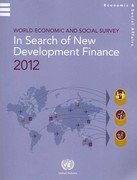Question
Consider a first-price sealed bid auction with n risk-neutral bidders (we've been examining risk neutral bidders all along). Each bidder has a private value independently
Consider a first-price sealed bid auction with n risk-neutral bidders (we've been examining risk neutral bidders all along). Each bidder has a private value independently drawn from a uniform distribution on [0,1]. That is, for each bidder, all values between 0 and 1 are equally likely. The complete strategy of each bidder is a bid function that will tell us, for any value v, what amount b(v) that bidder will choose to bid.
It is proposed that the equilibrium bid function for n = 2 is b(v) = v/2 for each of the two bidders.
That is, if we have two bidders, each should bid half her value.
a) (4 points) Suppose you're bidding against just one opponent whose value is univormly distributed on [0,1] and always bids half her value. What is the probability that you will win if you bid b=.1? If you bid b=.4? If you bid b=.6?
b) (4 points) Put together the answers to part a). What is the correct mathematical expression for p(win), the probability that you win, as a function of your bid b?
c) (4 points) Find an expression for the expected profit you make when your value is v and you bid is b, given that your opponent is bidding half her value. Remember that there are two cases: either you win the auction or you lose the auction. You need to average the profit between these cases.
d) (4 points) What is the value of b that maximizes your expected profit? This should be a function of your value v.
e) (4 points) Use your results to argue that it is a NE for both biddres to follow the same bid function b(v) = v/2
Step by Step Solution
There are 3 Steps involved in it
Step: 1

Get Instant Access to Expert-Tailored Solutions
See step-by-step solutions with expert insights and AI powered tools for academic success
Step: 2

Step: 3

Ace Your Homework with AI
Get the answers you need in no time with our AI-driven, step-by-step assistance
Get Started


